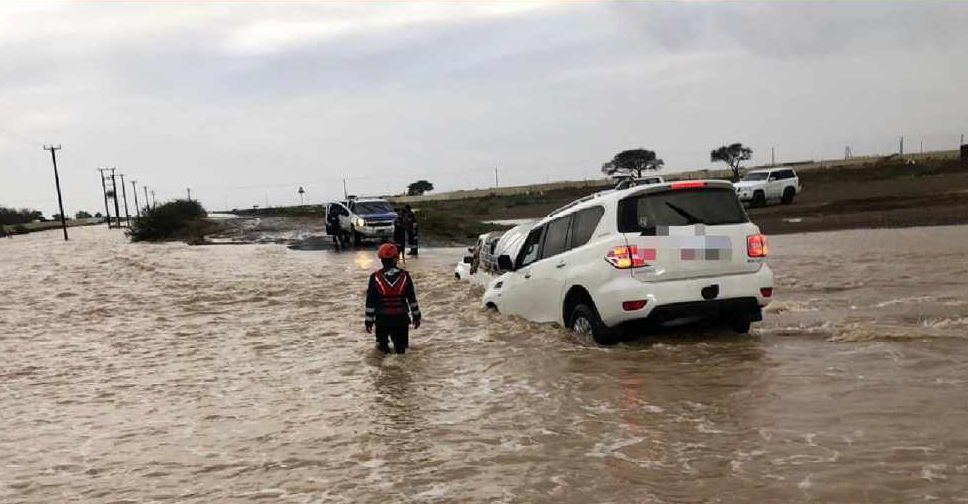
Get Quote
Brewing epidemic of communicable diseases after massive flooding in UAE ——How to prevent dengue fever?
A slow-moving storm system pummeled the United Arab Emirates and dropped more than a year’s worth of rain on some cities in April 2024. Heavy rain triggered flash flooding across eastern parts of the country, inundating roads and disrupting transportation.
The UAE's heaviest rainfall since meteorological records began in 1949 caused severe flooding in many places. According to data from the National Meteorological Center, rainfall in some areas in 24 hours exceeded normal annual levels, causing water accumulation on roads, flooding of residential areas, and even affecting the normal operations of the world's busiest Dubai International Airport.
Faced with such a severe natural disaster, the UAE government quickly activated the emergency response mechanism, organized rescue forces to carry out rescue and disaster relief, and at the same time strengthened drainage and traffic restoration work. Dubai International Airport also stated that it is actively working to resume flight operations, but due to the rain, there are still a large number of flight delays or cancellations.
It is well known that natural disasters disrupt ecosystems, posing numerous dangers to the habitat including humans and animals. There are two main causes, one is the nature itself while the other is anthropogenic alterations to the climate. The phenomenon of global warming due to human activities such as deforestation, unplanned urbanization, and irresponsible use of fossil fuel, is making extreme weather-related natural disasters more common. Floods are one of the most common and severe geoenvironmental disaster caused by extreme rains, high water levels in rivers and around coastlines. Thus, leading to substantial losses of infrastructure, economic output, social capital, health, and human life. An outbreak of communicable infectious illnesses, such as Dengue, Malaria and Rotavirus infection, among the affected community is the most dreaded outcome of flooding.
The UAE health department has taken urgent measures to strengthen epidemic monitoring and prevention and control, and remind the public to pay attention to personal hygiene and avoid mosquito bites.
Here, we recommend Genesis’ efficient and accurate EZER™ Dengue Rapid Test Device, EZER™ Malaria Antigen Rapid Test Device and EZER™ Rotavirus Antigen Rapid Test Device. This reagent uses advanced colloidal gold immunochromatography technology to quickly detect dengue, malaria and Norovirus virus antibodies in human whole blood, serum or plasma, providing strong support for epidemic prevention and control.
What is Dengue Fever?
l Dengue fever is a viral infection transmitted by the Aedes mosquito.
Transmission of Dengue Fever
l Dengue virus is transmitted when a female Aedes mosquito bites an infected person and
then subsequently bites an uninfected individual, transmitting the virus into their bloodstream.
l The virus cannot be transmitted directly from person to person.
Symptoms of Dengue Fever
l High fever (up to 40°C)
l Severe headache
l Pain behind the eyes
l Joint and muscle pain
l Nausea and vomiting
l Skin rash
l Mild bleeding (e.g., nose or gums)
It is advisable to seek medical help immediately if you experience any signs or symptoms
Treatment of Dengue Fever
There is no specific medicine to treat patients with Dengue Fever. Therefore, it is important to follow preventive measures.
When dealing with Dengue Fever, it is important to:
l Get some rest
l Increase fluid intake
l Take pain relievers
l Avoid blood thinners such as: aspirin
l Avoid exposure to mosquito bites. to prevent the spread of the disease
Risk Factors of Dengue Fever
Dengue Fever can affect anyone.
People at higher risk of developing severe dengue fever symptoms are:
l People who had previous infection with dengue fever
l Immunocompromised individuals
l Pregnant women
l Infants
Prevention of Dengue Fever
l Getting rid of mosquito gathering places, such as: water basins, whether inside or outside the house.
l Covering, emptying and cleaning all water tanks and basins, including water from household vases weekly.
l Using insect repellent skin creams inside and outside the house.
l Covering the body with long-sleeved clothes.
l Checking the safety of window grilles and that they are free of holes that might allow insects to enter.
l Using of insecticides when the disease spreads.
The floods in the United Arab Emirates not only had a serious impact on the lives of local people, but also reminded us once again that we need to be fully prepared for natural disasters. At the same time, it is equally important to strengthen disease prevention and control. Only in this way can we better protect the health of ourselves and our families.
We call on the general public to pay attention to personal health while paying attention to weather changes, actively take preventive measures, and jointly respond to possible epidemic risks. At the same time, we also hope that more companies and institutions can join in the epidemic prevention work and jointly contribute to building a healthy and safe social environment.
Reference: https://www.ncbi.nlm.nih.gov/pmc/articles/PMC10389208/


